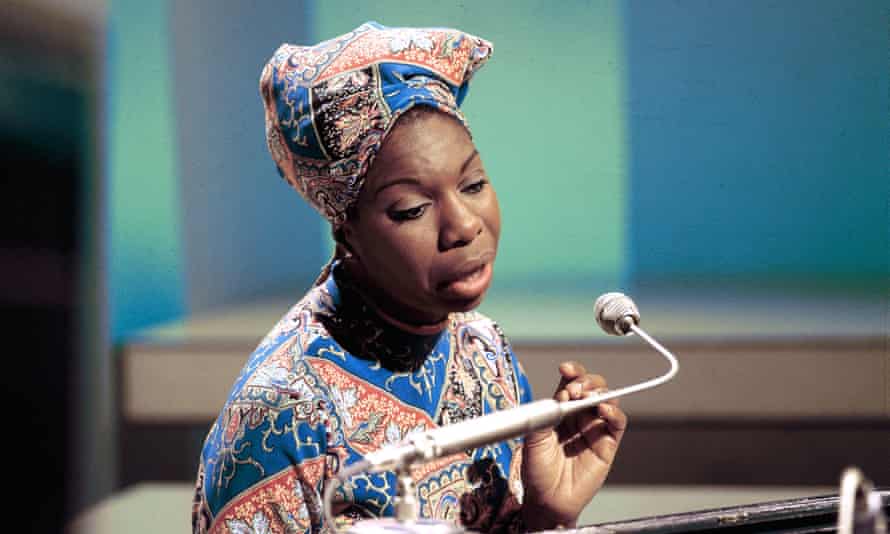When Will Smith slapped Chris Rock at the Academy Awards ceremony last month Margo Jefferson had stepped away from her TV for a moment. Like millions of us, she watched it on replay, absorbing the sheer novelty of a normally stage-managed spectacle collapsing into chaos. As it happened, the incident crystallised several Jeffersonian themes: televised glamour, Black entertainers, and the question of how to behave in public. In her 2016 memoir Negroland, about the lifestyles and mores of the Black elite in mid-century America, Jefferson recalls her parents dissecting the TV performances of Sammy Davis Jr, Dorothy Dandridge and Lena Horne, and describes the oppressive power of the dictum “everything we do must reflect well on the race”.
But times have moved on, she believes. Both Rock’s routine, in which he joked about Smith’s wife, Jada, and Smith’s response struck her as immature more than anything else. “They’re too old,” she sighs. “They are definitely too old and they should be too astute for these shenanigans.” Speaking to me from her apartment in New York’s West Village, in which the only physical objects appear to be books, she says: “That kind of old ‘respectability’ question did not really enter into it for me.” Why not? “Black culture, and our range of behavioural possibilities and choices, has expanded.” Judged as a performance, however – the critic in her is rarely stilled for long – it was simply cheap, juvenile, “staged hood theatrics”. “I wish it had been handled by Jada herself.”
Black women’s self-determination – including her own – features heavily in Jefferson’s latest book, Constructing a Nervous System, which combines frank personal reflections with analyses of cultural icons including Ella Fitzgerald, Nina Simone and Josephine Baker. It is more formally experimental than Negroland, already a fairly experimental blend of memoir, social history and criticism. Jefferson frequently shows her working, breaking down a writerly equivalent of the fourth wall with interjections such as: “I’ve reached an emotional stalemate here. I want to dilute, possibly delete this … I feel a little ashamed.” Or: “As I write this I worry that I’m about to hurl raw intimacies at new, uncommitted readers. If I delay, though, I’m coddling myself.” Her easy geniality as we talk feels very different to the exacting, rather ruthless tone she takes with herself in print.
What the two books share is a conviction that art is not “over there”, on the stage or gallery wall, but in our minds and our personal lives, shaping us intimately. Connecting with artists allows you to “move past your own little conventional self, giving you other physical and emotional possibilities,” she tells me. Fitzgerald in particular forced her to “question my own little protective devices and snobberies about what a pretty woman should be, what a glamorous woman should be, how useful and helpful feminine desirability was”.
With Nina Simone, the resonances are darker. Jefferson talks about her “temperamental kinship” with the singer who was diagnosed with bipolar disorder late in her career. Is Jefferson bipolar too? “It was also a diagnosis I’ve received,” she tells me matter-of-factly, adding that she found out around a decade ago, although she has been in therapy for much longer than that (she is 74). “Not nearly as damaging, fortunately, to me, but that’s probably because they have medications, and there’s quite a range to bipolar.” She points out that “we were always calling Simone a strong, beautifully angry Black woman. But she was suffering too. And she was also angry that she was suffering and couldn’t assuage it.”
These kinds of personal insights are harder to bring into the formal criticism Jefferson practised at the New York Times, where she reviewed books and plays, winning a Pulitzer prize in 1995. Is what she’s doing now a bit of reaction to those years of journalistic stricture? “Yeah, it does feel freer, more interesting. As a writer it allows me to try for more discoveries, in terms of tone, technique, or emotional temperature.”
Though reading the book feels like hitching a ride on Jefferson’s own train of thought, the sense of structural looseness is deceptive. “It was very, very intensely, and sometimes frantically and frenetically planned. I kept switching things around. The transitions were the devil, and I can still critique some of them. But I knew it had to be carefully planned or it could be chaotic, in a way I could follow but a reader couldn’t.”
What images, sounds and people are attracting her magpie mind right now? We talk about William and Kate in Jamaica – “The hands being shaken through the fence,” she cringes, referring to the photograph of the princess greeting Jamaicans through a barrier in Trench Town. “They’re clueless in their way … not ill-intentioned [but] clueless.” She mentions the new season of Donald Glover’s Atlanta. And vocalists – she lives for vocalists. “Cécile McLorin Salvant would not surprise people because I’ve written about her. But Megan Thee Stallion – I like to watch what she’s up to. I’m interested in that utterly shameless, what used to be called “vulgar bravado”, and sense of play, you know. She fulfils some of your expectations and desires and she thwarts others. I’m always interested in performers [who do] that.” What else? “TikToks! I have a friend who’s just very smart and funny, who is always sending me TikToks that are almost like really clever cartoonists, you know, daily strips.”

TikTok, of course, is also a venue for projecting the self, for broadcasting the various identities we might be able to lay claim to, complete with hashtags and, occasionally, an enhanced sense of righteousness. What does she make of the current enthusiasm for self-labelling? “It simplifies. It can become a source of defensiveness and pride that you’re not in control of. In that way it can thwart a certain flexibility.” But, she adds, “I see its purposes” and warns the phrase “identity politics” is one that has become “like a truncheon”. “It was always delivered even on the page with a sneer, as if it was all about intellectual simple mindedness.” Why so? Because efforts to break down the old rules of race, class, gender and sexuality have in fact been quite successful. Things have opened up, been redefined, and “if you’re fighting those kinds of political and social and emotional changes, you have to demean and belittle and simplify your opponent and come up with a phrase that will signal to other people that it’s dangerous”. She sees the term “cancel culture” as similarly compromised. “You can critique a lot of particular choices without using that phrase,” she says.
And critique them she does. For instance: “In the canon, I’m not so concerned with ‘an eye for an eye, a tooth for a tooth’, yanking out books that I don’t love. I don’t like bullying. And I don’t like the sense that we are so fragile, we’ve been treated so badly, we’ve been so oppressed that we cannot stomach any of this, that it can’t be anywhere around me. I don’t like that.”
What’s next? Jefferson has just been named as a recipient of the Windham-Campbell prize, which comes with a $165,000 (£125,000) cheque. But she isn’t leaving herself much time to kick back and stream episodes of Atlanta. She’s already planning a “dual memoir” with a white American friend of her own generation, a “seasoned writer” whose name she’s keeping under wraps but says will be familiar. The plan is to chart decades of history from two distinct but intertwining perspectives. “We’ve gone through separately, and as close friends, so much wild and vehement social, emotional and racial change that we thought OK, let’s see. It will be about friendship too, from people for whom friendship has become as important as marriage.” And in the meantime, essays, interviews, appearances. Jefferson clearly takes her grandmother’s exhortation, also the last line of Constructing a Nervous System, to heart: “You haven’t earned your right to be tired yet, have you?”

